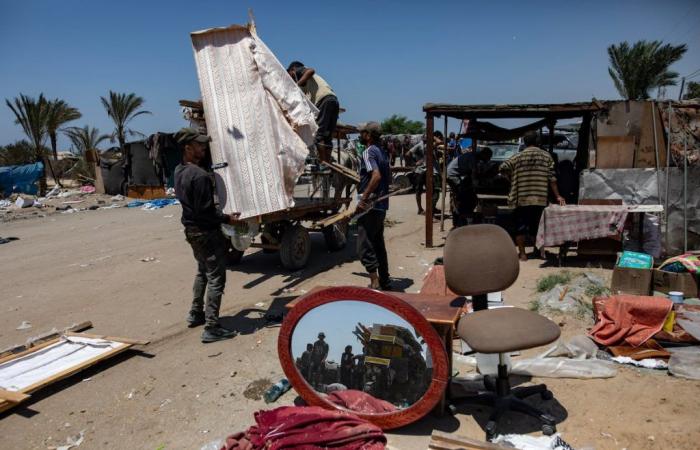
WHO warns of possible rise in communicable diseases with the arrival of summer in Gaza
The high temperatures recorded in Gaza, added to the lack of drinking water due to the shortage of fuel to purify it, can cause an increase in communicable diseases, according to the World Health Organization (WHO). “When it is hot and there are no sanitation services, water sources are more easily contaminated, which causes diseases such as diarrhea,” said WHO spokesperson Tarik Jasarevic, in a press conference to the media accredited to the UN in Geneva.
Diarrhea cases are already on the rise in Gaza, adding to the more than 470,000 reported by the WHO since the start of the conflict, of which more than 110,000 are children under 5 years of age. According to the spokesperson, these children face a “potentially fatal” combination, as many also suffer from malnutrition and have serious difficulties in accessing the necessary health care.
Jasarevic also warned of an increase in skin diseases and an outbreak of hepatitis A among the Gazan population, caused mainly by the consumption of contaminated water from “unreliable” sources and “inadequate and unhygienic” containers.
However, the expert has assured that these diseases can be transmitted not only through contaminated water, but also through food, which runs the risk of spoiling more quickly due to high temperatures.
Another vector of contagion is flies and mosquitoes, responsible for diseases such as dengue or malaria and which tend to proliferate with hot weather and inadequate solid waste management. In this sense, the communications officer of the UN Agency for Palestinian Refugees (UNRWA), Louise Wateridge, has assured that many Palestinians live in camps surrounded by their own waste, a situation that makes living conditions ” extremely terrible.” (Efe)

